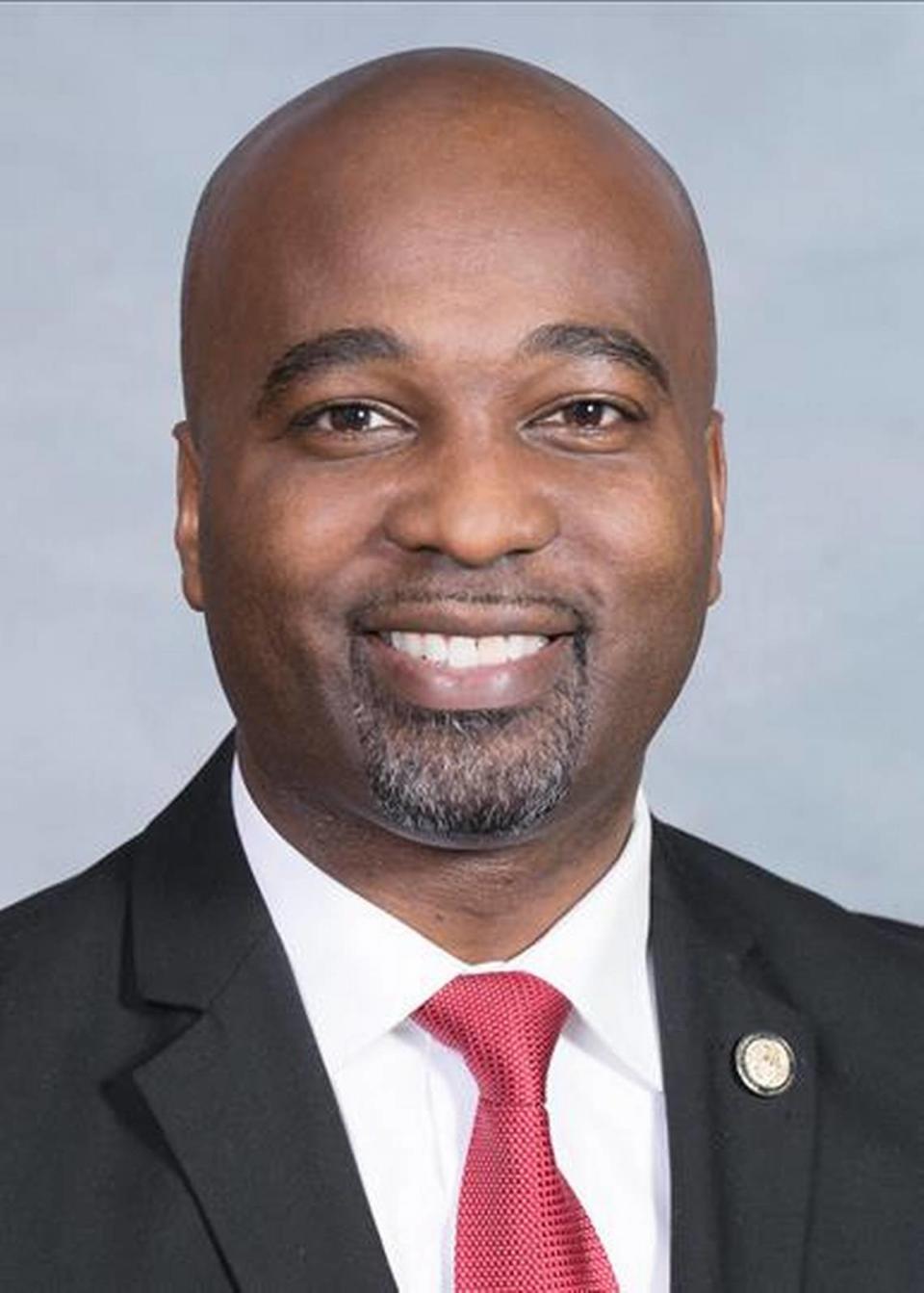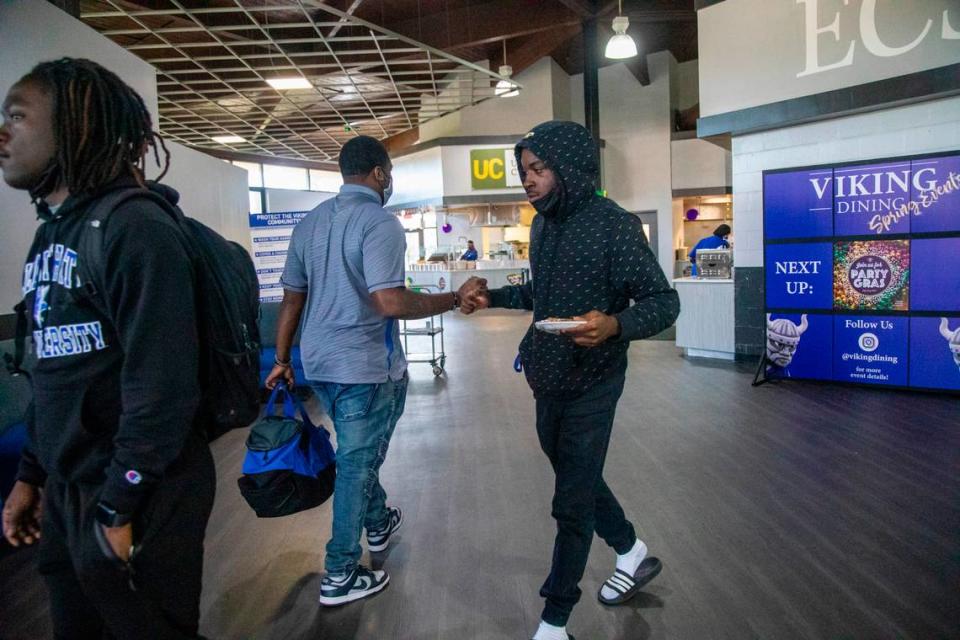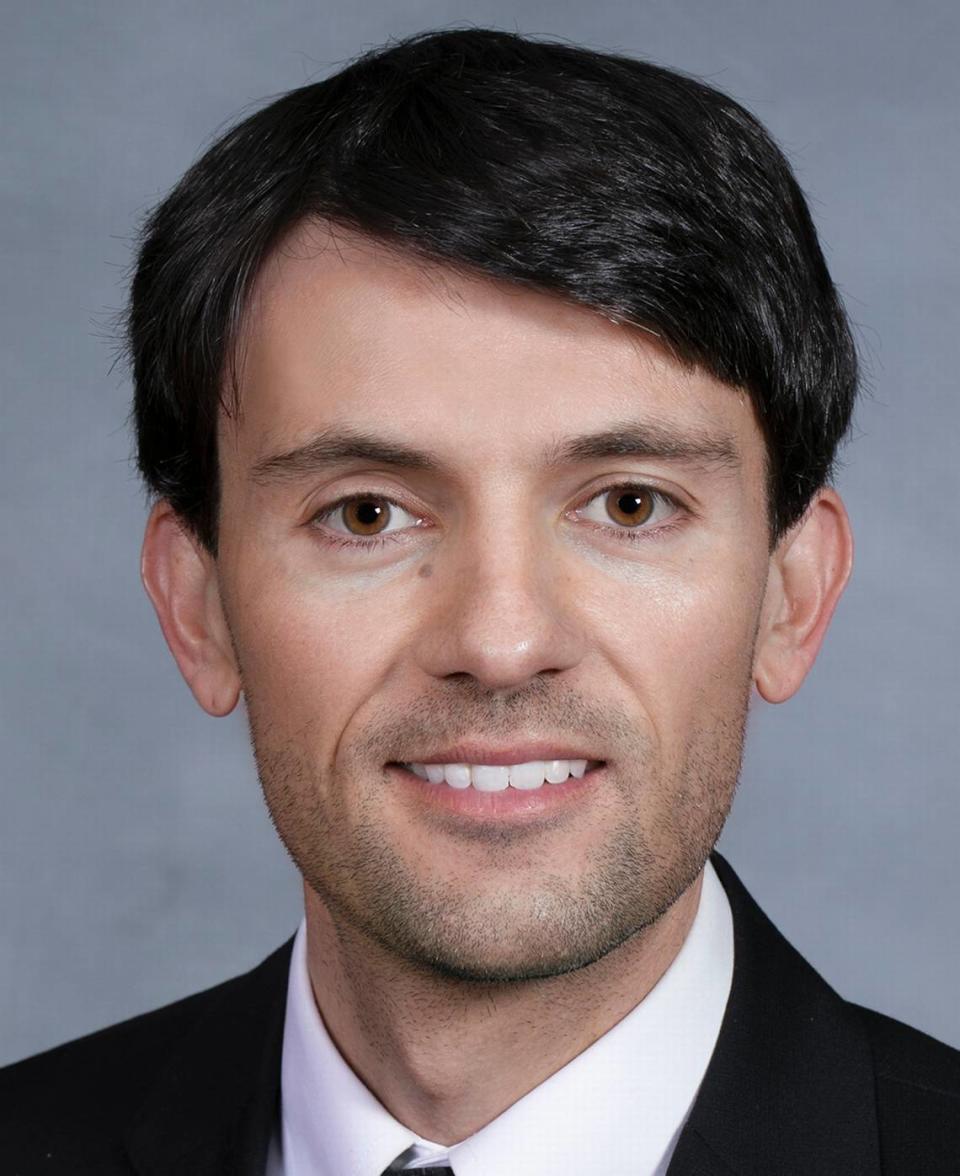NC Democrats, Republicans launch state’s first bipartisan HBCU Caucus
As North Carolina’s legislative session gets underway, a new caucus is being formed this year for historically Black colleges and universities.
Two House representatives — a Black Democrat and a white Republican — whose districts include North Carolina’s flagship HBCUs, are forming the HBCU Caucus and want to gather a bipartisan group.
Rep. Zack Hawkins is a Democrat from Durham, which is home to N.C. Central University. Rep. Jon Hardister, a Republican, represents Guilford County, which includes N.C. Agricultural and Technical State University in Greensboro. They will chair the House side of the caucus, and in the Senate, Democratic Sen. Gladys Robinson of Guilford County will chair along with another senator yet to be named.
There is interest from several lawmakers on both sides of the aisle in being part of the caucus, Hawkins and Hardister told The News & Observer.
Lawmakers don’t have to be alumni of HBCUs to join, Hawkins said. The idea started from former statehouse representative and current U.S. Rep. Alma Adams, who formed the Bipartisan HBCU Caucus in Congress in 2015.

There are five public HBCUs in North Carolina, all part of the UNC System: NCCU, N.C. A&T, Elizabeth City State University, Fayetteville State University and Winston-Salem State University. Hawkins is a two-time graduate of ECSU, with bachelor’s and master’s degrees.

There are also five private HBCUs: Shaw University and St. Augustine’s University, both in Raleigh; and Johnson C. Smith University in Charlotte, Bennett College in Greensboro and Livingstone College in Salisbury.
Hardister said that the 10 HBCUs “collectively have an economic impact somewhere around $2 billion annually.”
“The idea is to find out, how can we support HBCUs and their mission, to educate and provide quality education, and highlight the historical impact that they’ve had on the state,” Hardister said.
Hardister is the House majority whip and chair of the House Education-Universities Committee and the House Appropriations-Education Committee, so he has some influence over bills’ movement, votes and content. Republicans hold a veto-proof supermajority in the Senate and are one vote away from a supermajority in the House.
Hardister said he wants past support for HBCUs, including their capital projects and programs, “to keep going.”
“HBCUs have a phenomenal impact on the state,” he said, listing off academics, research and development, and especially graduates who become teachers.

What NC’s HBCU Caucus will do
Hawkins said the caucus will work to “maximize the potential” of the state’s HBCUs.
The Hunt Institute, an education nonprofit, will help facilitate the caucus, he said. How often its members will meet and what exactly they’ll do is still in the works, but Hawkins would like the caucus to visit North Carolina’s HBCU campuses.
He’d like representatives from each HBCU to visit the legislature, too, and said that NCCU will be visiting this year after its football team won the Celebration Bowl. There hasn’t been an HBCU Day at the General Assembly, he said.
There has been an annual day for members of the Divine 9, nine prominent Black sororities and fraternities, to visit the legislature, but those aren’t limited to HBCUs.

“HBCUs should not be at the whim of who’s in charge,” Hawkins said. “So we want to make sure no matter who’s in charge — Democrats or Republicans — [the HBCU Caucus] will always be thinking what can we do, to prioritize and think about a long-term plan to maximize these HBCUs.”
He said HBCUs have been underfunded over time, but that can change.
“We want to make sure everybody is bringing the amazingness of these institutions to the table,” Hawkins said. He said North Carolina’s General Assembly is the first in the country to do it this way.

